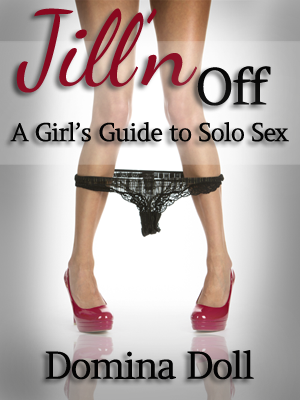Not a love story: a critique of anti-porn propaganda

I first heard about Not a Love Story: a Film about Pornography (1981) a film by Bonnie Sherr Klein soon after its release, when my mother and her feminist group watched the film during one of their meetings. My mother came back from the meeting angry: angry about pornography, angry at what she considered to be the objectification and abuse of women in sex films. I was sweet sixteen and at that time had not really watched any porn films, although I had for years looked at girly mags (a secret fascination) hidden under my next door neighbor’s bed. I had already had “sex” at that age but was not very enlightened by it. My feelings about what my mother felt were mixed. Obviously, I had a secret desire to view “pornography” or nudie images myself and did get aroused by them. On the other hand, what my mother was saying about porn did make some kind of sense. But, I also felt that she and her feminist group were somewhat mislead, or perhaps too passionate about their condemnation of everything pornographic. If I enjoyed it did it mean that I degraded women too? Was I sick, or sexually perverted? Perhaps, I was (and am), but that doesn’t mean that their view about porn or the film that started the controversy was “accurate”.
The next time I heard about (and watched) Not a Love Story was in my Canadian women’s film class while taking film and photography at NSCADU. Our professor was not what you would call a feminist. She did not openly condone or demonize the film. She allowed us to have and express our own views about the film, and ultimately debate it. My response was similar to that of my mothers many years ago, in that I was angry. But, it wasn’t the porn industry I was angry at, but the filmmaker Bonnie Sherr Klein.
Klein’s influential and widely criticized NFB documentary Not a love story caused a huge stir when first released. In its goal to censor widespread pornography it was originally banned by the Ontario Censor Board for deliberately using the violent pornographic imagery it allegedly condemned under the guise of a documentary. The film provoked extremely passionate and emotional responses from its viewers, most of which was anger: anger at men; anger at pornography; anger at violence against women; and anger at the film itself.
Not a love story is a subjective attempt to provoke and manipulate the viewer and the protagonist, Montreal stripper, Lindalee Tracey with its anti-porn propaganda. Set up under the guise of a documentary it is cleverly scripted to support an anti-porn agenda and illicit extreme and angry responses. Tracy, playing the part of “reformed sinner” is coerced, manipulated and exploited by Klein to investigate the sleazy underground porn trade in New York “for the greater good of the film.” Throughout the film she is constantly attacked by radical feminist rhetoric and made to question her own beliefs for being “a part of the problem” when in fact she uses “porn” to critique the industry itself with her bawdy humor and burlesque performances. Rather than take any risks herself, Klein exposes Linda to the most explicit and extreme examples of violent porn and aspects of the sex industry (sadomasochism, snuff and child pornography), effectively associating all porn with brutal violence against women, while never actually establishing a tangible link between the two. By the end of the film, Tracy is, in her own words, “molded and shaped” by her experience of posing for a Hustler photographer when it was essentially Klein who “molded and shaped” her for the filmmaker’s own self-supporting political agenda.
Far worse, however, is Klein’s own flagrant objectification of the other women in the film through voyeurism, in which the camera’s eye essentially becomes the vehicle for a victimizing and “privileged gaze”. Klein “visually exploits” one woman, Blue Sky, during the peep show footage while the male customer is secluded in the shadows in her quest to inflame an emotional viewer response. During her discourse, however, Klein herself remains sheltered in her little glass house with her gaggle of self-described man-haters who zealously condemn sex workers as bad objects, from their self-imposed pedestals of virtue to provide the “moral redemption” for the film.
Village Voice critic Ruby Rich, in her insightful article on the film “Anti-porn: Soft Issue, Hard World” referred to it as “conversion cinema in action” and “a most sophisticated form of voyeurism.” Rich criticizes the film and the filmmaker for their artful manipulation of the medium through editing and various other filmic devices. By employing a “scripted religious parable,” the objectifying gaze, and further manipulation of the film medium through editing, Klein created a cunning and deceptive (ph)allacy which she then forced down the viewer’s throat, in a figurative Linda-Lovelace-ian line of attack. Klein’s line of attack is subjective: she never shows footage of women enjoying sex, of sadomasochism from a Domina’s perspective, or gay porn. During the film she (Klein) represents the “voice of authority” and repeatedly addresses the film viewer, instead of Lindalee Tracy who she is in conversation with, condemning the viewer as being complicit in violence against women by our silence and acceptance of porn. We too are “a part of the problem”. By the film’s end, we are meant to feel as guilty as the “sinners” who pay penance to Klein and her fire and brimstone saints, and are likewise to be converted to anti-porn activists just as Tracy was, preaching from our soapboxes outside strip-shows all across America as members of WAP (Women Against Pornography).
Klein attempted (and mostly succeeded) to use her terrorist tactics under the guise of a documentary to illicit horrified responses and to incite the viewer to join her “war on pornography” and censorship. Using an oppressive point of view that advocates censorship, this film is a fine example of the power of film and its ability to use emotion over reason to evoke fascist solidarity from the viewer. But much like other films that promote propaganda and hate, victimizing those it claims to protect, Not a love story essentially obscures the social problem of violence against women that is already deeply ingrained in our society, and issues of power in the real world by concentrating on pornography as the problem. Far from objective, the film is ideologically complicit and uses only specific examples. The film fails to distinguish the difference between sex and porn, or to explore the connection between the objectification of women in porn and the exploitation of the female sexual body in mass media advertising. It never creates any direct causal link between porn and violence against women, or fulfills Dworkin’s agenda that “porn is violence against women.” Still, it remains a provocative use of the film medium as propaganda, and an insightful view of the anti-porn attitudes during the 1980s.
Incidentally, Lindalee Tracey expressed “disappointment with the filmmakers’ portrayal of her and other sex workers, [yet] she helped promote the production, feeling that doing so would give her a platform from which she could voice her objections.” She later went on to become a documentary filmmaker herself and founded Magnolia Movies, making a documentary called “The Anatomy of Burlesque.” The film site of this flick is pretty cool and features a lot of information on classic burlesque performers including Gypsy Rose Lee.
See my earlier article on the porn/anti-porn debate for more info: Porn for Women- Feminist Sex Wars and Anti-porn Feminism.
Sources:
-Not a Love Story: a Film about Pornography (1981) by Bonnie Sherr Klein, NFB Film
-Rich, Ruby. “Anti-porn: Soft Issue, Hard World.” Gendering the Nation: Canadian Women’s Cinema, University of Toronto Press, Toronto, Buffalo, London (1999).
-Insightful Essay- Not a Love Story: The film and the debate by Lisa DiCaprio










3 Responses
[…] Not a love story: A Critique of Anti-Porn Propaganda (Pop My Cherry) 8/08 […]
[…] Not a love story: A Critique of Anti-Porn Propaganda (Pop My Cherry) 8/08 […]
[…] Women Directors, I watched an anti-pornography film by director Bonnie Sherr Klein called “Not a love story: a film about pornography” (1981). Oddly enough, it was a film that my mother had watched in her feminist group years […]